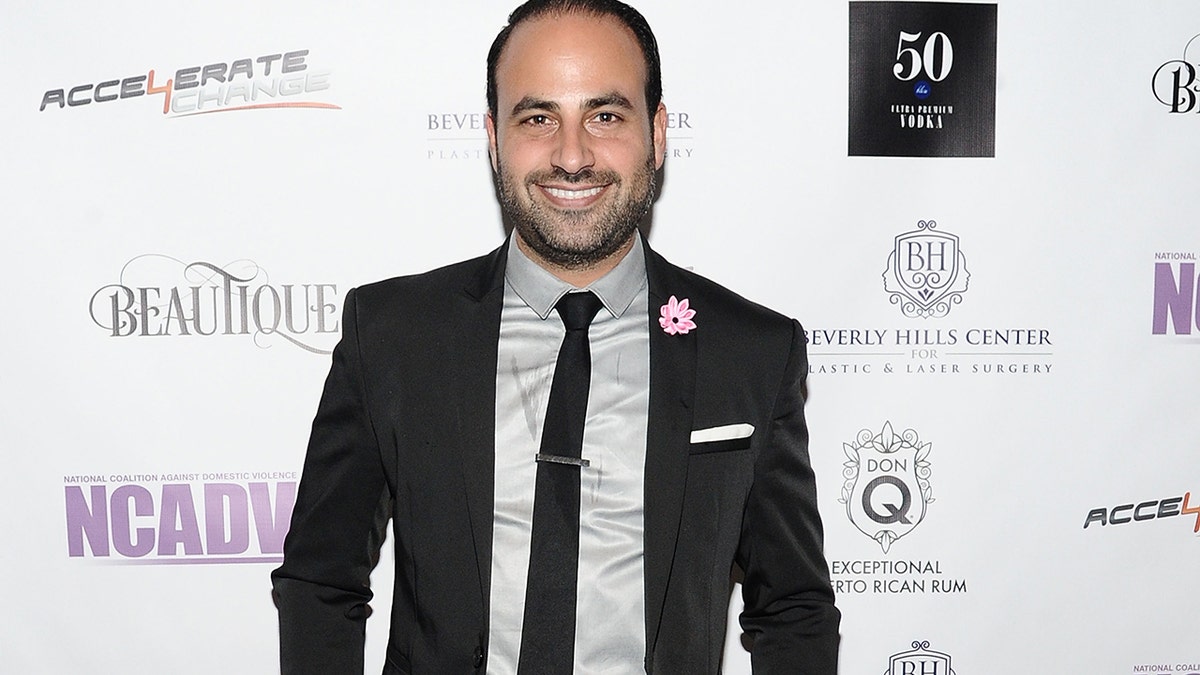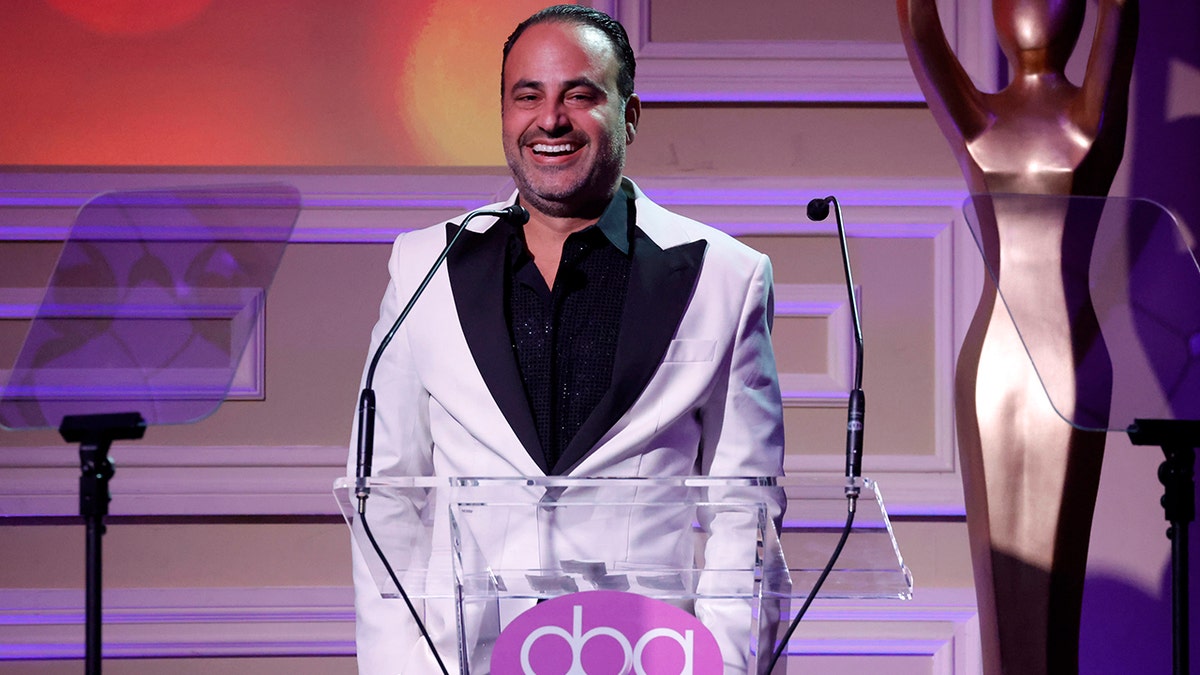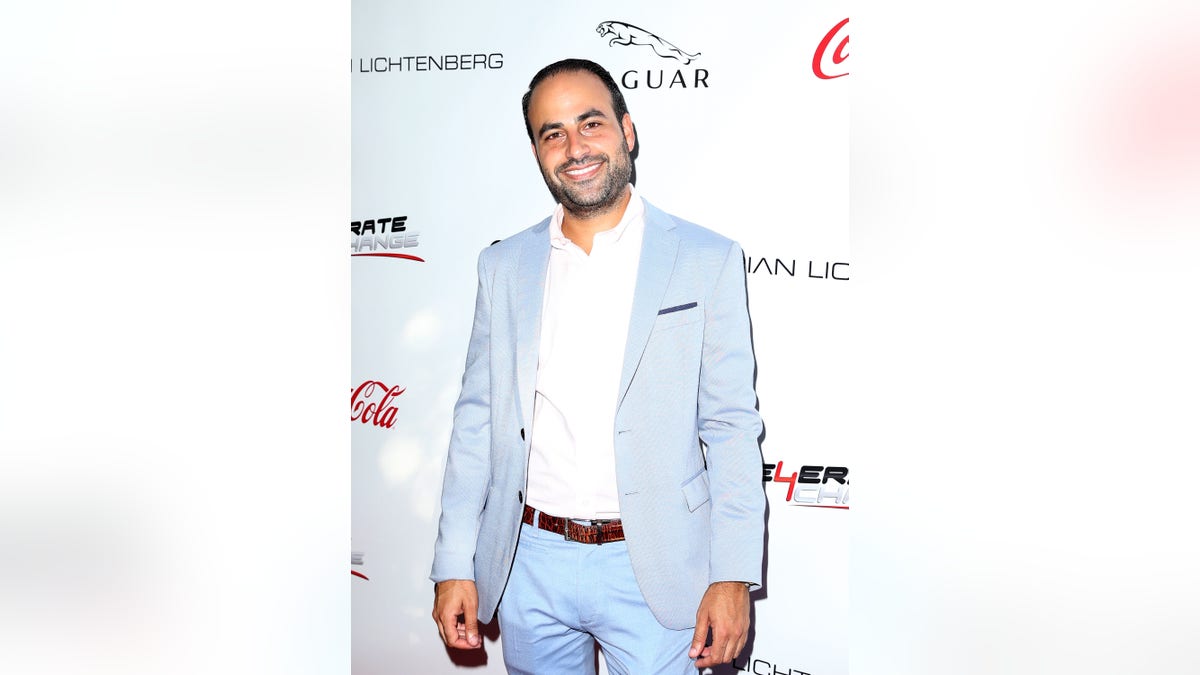During the strike, actors have found themselves with a lot of downtime. In addition to picketing, another popular option, according to Dr. Ben Talei, is getting a cosmetic refresh.
The Beverly Hills-based plastic surgeon, who was recently praised by “Chandelier” singer Sia for giving her an “amazing” facelift, explained the mini plastic-surgery boom he has seen in his office.
“Before the strike, as rumors were kind of going around that a strike was going to start… I began getting consults and I started getting lots of text messages from friends and friends of friends in Hollywood,” Talei told Fox News Digital. “And they all just wanted to come in to maybe see what’s possible and what recovery time would be for various things if they were to do that.”
Sia praised her surgeon, Dr. Ben Talei, during the 5th annual Daytime Beauty Awards, calling him a “good friend.” (Frazer Harrison/Getty Images)
Talei revealed that just before the strike began in July, he received numerous calls to book various procedures, and “ended up doing a ton of facelifts.”
“I usually do six Auralyft procedures a week Monday, Tuesday, Wednesday. And then we had to open up Fridays and Saturdays for a few months,” he said.
The AuraLyft facelift is one of Talei’s signature procedures and has a base cost of $75,000, with additional elements like eyes costing more. He also offers a Cupid lift for the upper lip, which costs around $15,000.
“The Auralyft, [in] three weeks, people are back in public, but it takes two to three months to be back on camera because the camera picks up different things than your eye does normally,” Talei explained.

Dr. Ben Talei told Fox News Digital he “ended up doing a ton of facelifts” since the actors’ strike. (Daniel Zuchnik/WireImage)
He also shared that many male actors opt for his Weekend Necklift, which “is [for] guys who come in and have a droopy neck, but they don’t have a lot of extra skin, just a droopy neck, and they hate seeing it on screen because they lost that kind of defined chiseled look. And I do this internal deep plane lift, which has a pretty fast recovery.”
For those hesitant to go under the knife, Talei also offers as a non-surgical skin tightening procedure called Profound, which is in the $5,500 range.
“We were doing profound radio frequency on those people who didn’t want to get a facelift and were worried about it, but still wanted a little bit of a lift or tightening,” he said. “So we used profound radio frequency on them, and they just are chubby for five days, six days, something like that. And they get great skin quality results, and they end up looking better on screen.”
The University of California, San Diego School of Medicine graduate said that for his Hollywood-based clientele during the strike, “It was very much the things that just make people look better on camera, which was neck or eye. Those are like the two main things that we saw.”

Dr. Ben Talei said he saw an uptick in his Hollywood-based clientele seeking procedures “that just make people look better on camera.” (Frazer Harrison/Getty Images)
CLICK HERE TO SIGN UP FOR THE ENTERTAINMENT NEWSLETTER
Now, as the strike appears to be winding down while the actors’ guild and the AMPTP continue negotiations, Talei said, “the facelift time has kind of passed. We’re back to like just normal routine calendar now.”
However, he is seeing another surge for a different procedure.
“Now what we’re seeing is the people who went and got fillers done wrong, incorrectly, which this is like not just one I’m talking about like 20 or 30 actors, comedians, singers [they] are coming in saying, ‘During the strike, I went and got all these fillers done because I thought it was going to be a good time and now I look stupid.’ And so we’re dissolving a bunch of these things now.”
“They picked the wrong person and they went to somebody who just doesn’t have good taste and they all got overfilled,” Talei added.
LIKE WHAT YOU’RE READING? CLICK HERE FOR MORE ENTERTAINMENT NEWS
In his opinion, a lot of people opted for overfilling in the under eyes, the lips and the jawline.
“The injectors in general don’t have very good talent or tastes. You end up seeing all this kind of like stretches of the imagination happening on people’s faces,” he added.
One of the main issues on the table during strike negotiations is the use of AI and actors’ fears of their likenesses being used or altered without permission.
In Talei’s opinion, he does not see AI slowing visits to his office anytime soon. In fact, the technology could actually help his practice.

Dr. Ben Talei arrives at the Accelerate4Change charity event on Aug. 29, 2015 in Beverly Hills, California. (Rochelle Brodin Photography/Getty ImagesFrazer Harrison/Getty Images for Accelerate4Change)
CLICK HERE TO GET THE FOX NEWS APP
“AI is going to be kind of helping with the consultation process and booking procedures and things like that,” he said. “We don’t know how else we are going to be using it.”
He has seen some fellow medical professionals use the technology outside the clinical setting.
“A bunch of doctors are using it to help them write blogs,” Talei said, or using it to help “them with writing research articles,” and speeches.
He added, “A lot of the doctors who aren’t good at public speaking, they have AI help write their talk for them.”